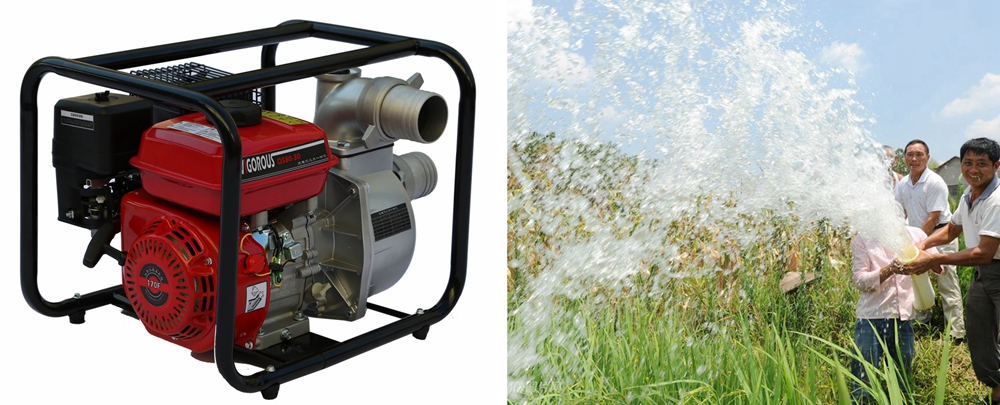1. VIGOROUS Gasoline Water Pumps have high delivery rates with high volume of flow and high pressure.
2. Efficient 4-stroke OHV gasoline engine driven. Casting aluminium pump and mechanical carbon/ceramic seal and strong cast iron impeller prolong life of Gasoline Water Pump.
3. Light weight and compact design.
4. Low fuel consumption and Low noise emissions.
5. Big fuel tank for long run time.
6. VIGOROUS Gasoline Water Pumps are economic, reliable and durable. It is hydraulic home use, agricultural Irrigation Gasoline Water Pump. 
Gasoline Water Pump
Gasoline Water Pump,Mini Gasoline Water Pump,Agriculture Gasoline Water Pump,Irrigation Gasoline Water Pump
Jiangxi Vigorous New Energy Technology Co., Ltd. , https://www.vigorouspower.com
